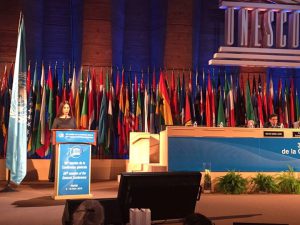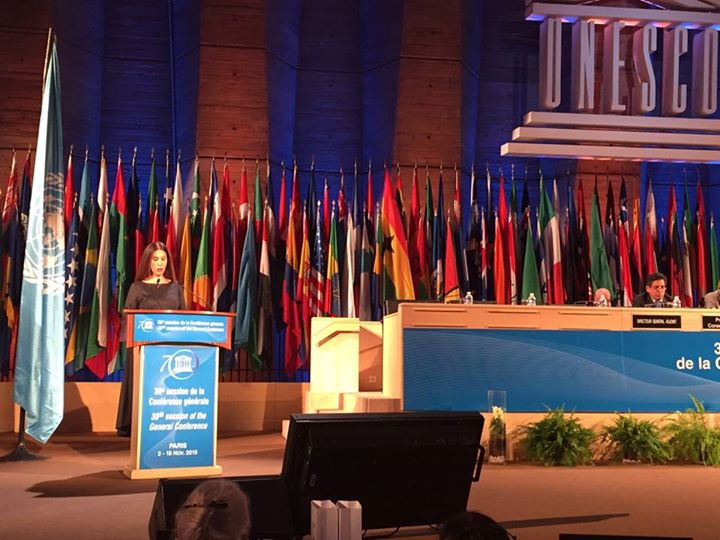TIRANA, Nov. 9 – Kosovo’s membership into the UNESCO Monday turned into a diplomatic war behind the scenes at the UNESCO headquarters in Paris, with Tirana being part of a U.S-led group lobbying hard on behalf of Prishtina but ultimately failing to win by a mere three votes.
The majority of the countries present voted in favor of Kosovo’s membership bid, but as two thirds of the votes were needed, Serbia and a Russia-led group were able to secure enough votes and abstentions to deny entry into the UN’s cultural organization.
Out of 142 votes, 92 were in favor of Kosovo’s UNESCO membership, just three votes short of the 95 needed . Fifty countries voted ‘no,’ while 22 others abstained from voting.

However, officials said the efforts showed Albania can play a significant role, alongside its main strategic partners like the United States and big western European powers, to lobby on behalf of Kosovo with international bodies.
“All the other countries of the region are UNESCO members and it would be absurd, even ridiculous, that a member of the Balkan family is not formally within the largest organization of culture and education,” said Albanian Culture Minister Mirela Kumbaro speaking at the conference. “Culture knows no borders. Culture is not protected by excluding the other; on the contrary, it is enriched from the exchange and inclusion. That’s the essence of UNESCO’s existence.”
Ultimately, political affiliation or support, won over cultural and scientific pleas.
Kosovo, which declared its independence in early 2008 wants desperately to join the UN agency, but Serbia — helped by Russia and China – put all of its political and diplomatic machinery to counter its membership for fear it would further legitimize Kosovo’s independence, which is now recognized by 111 countries worldwide.
Kosovo could get only 92 votes at UNESCO because some of its supporters abstained, were absent or had lost the right to vote for not paying their dues.
In September, the first move over Kosovo’s demand to join UNESCO was initiated followed by Albania’s resolution proposal adopted in October to refer the demand to the General Conference of this month.
Albania fought with the arguments and attempts of Russia and Serbia top officials and diplomats to bring down Kosovo’s UNESCO membership bid.
Serbian diplomats went as far as comparing Kosovo – a strong U.S. and Western ally — to ISIS terrorists in Iraq and Syria.
Kosovo leaders harshly denounced such a language saying that would not help cooperation in the region and between them.
Ethnic Albanians in the Western Balkans inhabit five countries in the region: Albania, northwest Macedonia, Kosovo, southern Serbia and southeast Montenegro.
The indigenous Albanian-speaking population was stranded outside the borders of Albania when the country declared independence in 1912 and the powers of the time decided to give their land to the stronger neighboring countries.
Ethnic Albanians in northern Greece were either ethnically cleansed or assimilated based on their religious faith, whereas the more more numerous ethnic Albanians of the former Yugoslavia resisted such efforts and were able to keep their Albanian identity.










